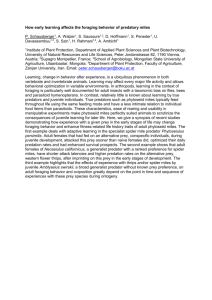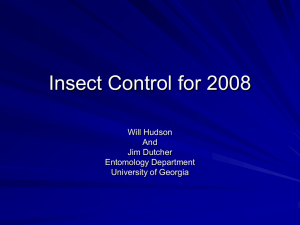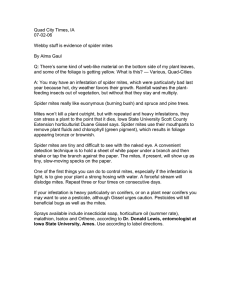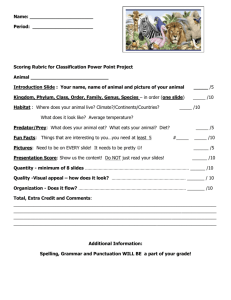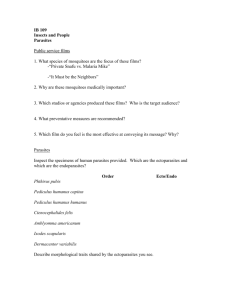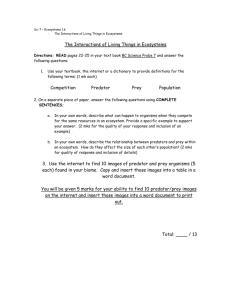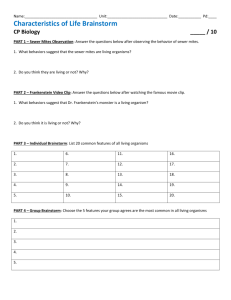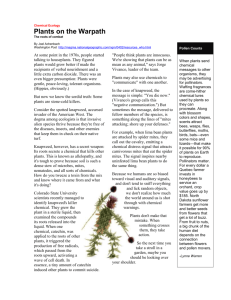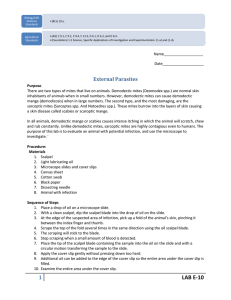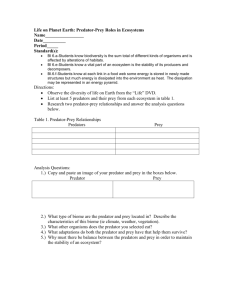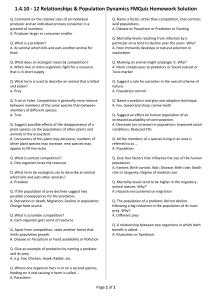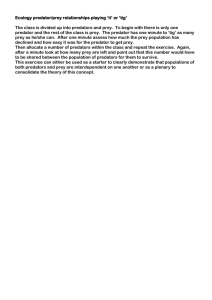303-302 RESEARCH IN BIOLOGY
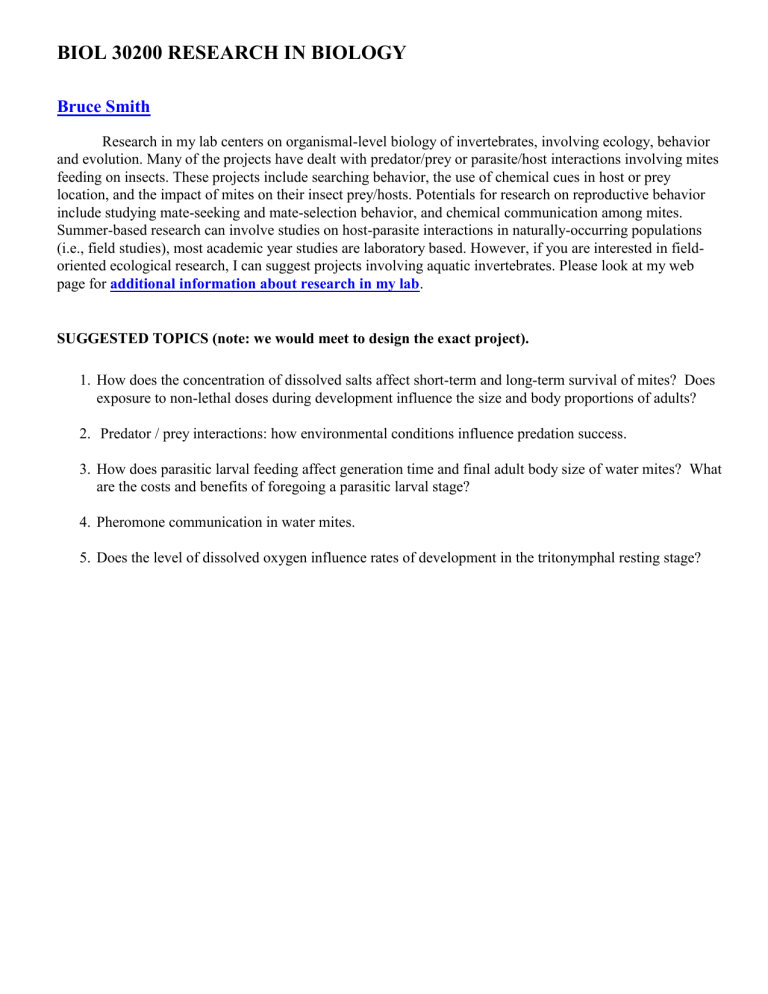
BIOL 30200 RESEARCH IN BIOLOGY
Bruce Smith
Research in my lab centers on organismal-level biology of invertebrates, involving ecology, behavior and evolution. Many of the projects have dealt with predator/prey or parasite/host interactions involving mites feeding on insects. These projects include searching behavior, the use of chemical cues in host or prey location, and the impact of mites on their insect prey/hosts. Potentials for research on reproductive behavior include studying mate-seeking and mate-selection behavior, and chemical communication among mites.
Summer-based research can involve studies on host-parasite interactions in naturally-occurring populations
(i.e., field studies), most academic year studies are laboratory based. However, if you are interested in fieldoriented ecological research, I can suggest projects involving aquatic invertebrates. Please look at my web page for additional information about research in my lab .
SUGGESTED TOPICS (note: we would meet to design the exact project).
1.
How does the concentration of dissolved salts affect short-term and long-term survival of mites? Does exposure to non-lethal doses during development influence the size and body proportions of adults?
2.
Predator / prey interactions: how environmental conditions influence predation success.
3.
How does parasitic larval feeding affect generation time and final adult body size of water mites? What are the costs and benefits of foregoing a parasitic larval stage?
4.
Pheromone communication in water mites.
5.
Does the level of dissolved oxygen influence rates of development in the tritonymphal resting stage?
